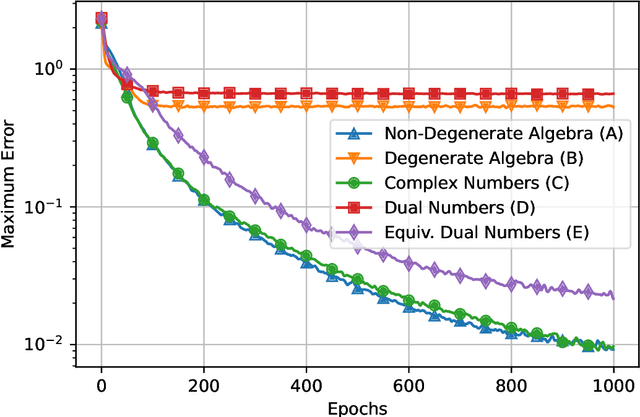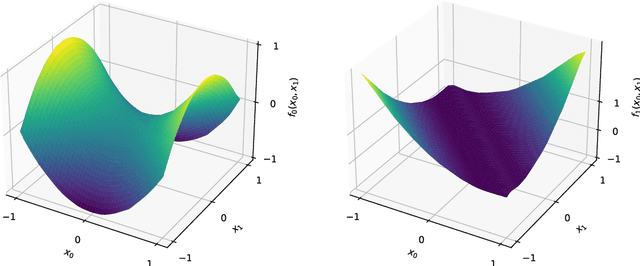Wington L. Vital
Universal Approximation Theorem for Vector- and Hypercomplex-Valued Neural Networks
Jan 04, 2024



Abstract:The universal approximation theorem states that a neural network with one hidden layer can approximate continuous functions on compact sets with any desired precision. This theorem supports using neural networks for various applications, including regression and classification tasks. Furthermore, it is valid for real-valued neural networks and some hypercomplex-valued neural networks such as complex-, quaternion-, tessarine-, and Clifford-valued neural networks. However, hypercomplex-valued neural networks are a type of vector-valued neural network defined on an algebra with additional algebraic or geometric properties. This paper extends the universal approximation theorem for a wide range of vector-valued neural networks, including hypercomplex-valued models as particular instances. Precisely, we introduce the concept of non-degenerate algebra and state the universal approximation theorem for neural networks defined on such algebras.
Extending the Universal Approximation Theorem for a Broad Class of Hypercomplex-Valued Neural Networks
Sep 06, 2022Abstract:The universal approximation theorem asserts that a single hidden layer neural network approximates continuous functions with any desired precision on compact sets. As an existential result, the universal approximation theorem supports the use of neural networks for various applications, including regression and classification tasks. The universal approximation theorem is not limited to real-valued neural networks but also holds for complex, quaternion, tessarines, and Clifford-valued neural networks. This paper extends the universal approximation theorem for a broad class of hypercomplex-valued neural networks. Precisely, we first introduce the concept of non-degenerate hypercomplex algebra. Complex numbers, quaternions, and tessarines are examples of non-degenerate hypercomplex algebras. Then, we state the universal approximation theorem for hypercomplex-valued neural networks defined on a non-degenerate algebra.
 Add to Chrome
Add to Chrome Add to Firefox
Add to Firefox Add to Edge
Add to Edge